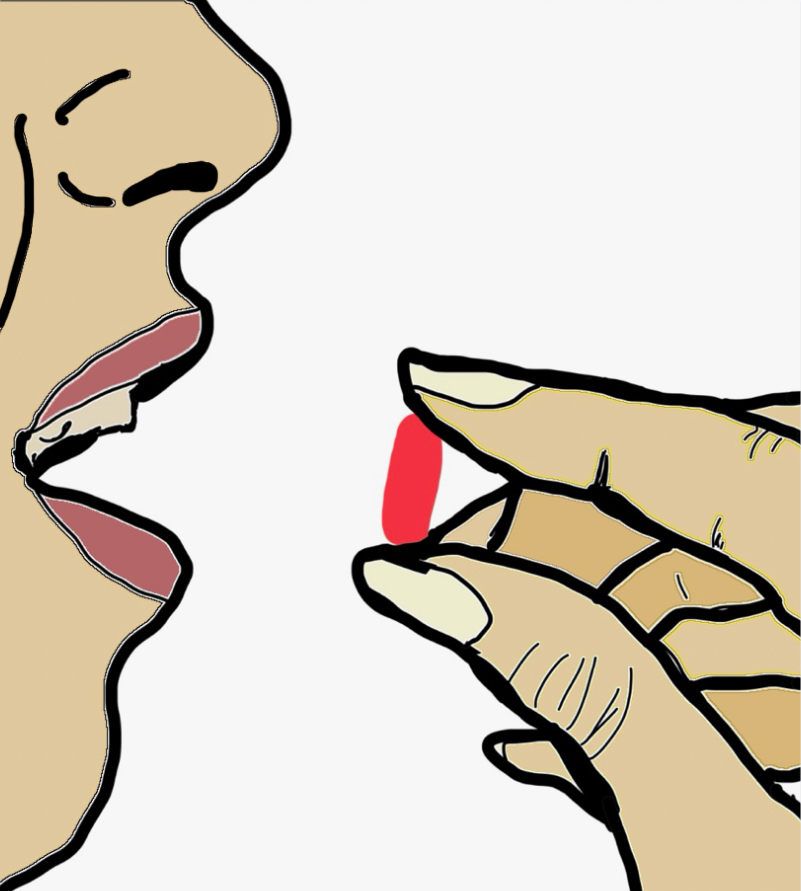Nonmedical use of stimulant medications can have detrimental effects on college students’ mental health, especially when paired with alcohol, but the effects of psychedelic drugs may provoke greater curiosity and therapeutic experiences, according to ongoing research from Binghamton University.
The Binghamton Student Managed Adderall Research Team, or B-SMART, and students in the clinical psychology doctoral program have conducted research on drug and substance use nationwide and on campuses. Dr. Lina Begdache, an associate professor in the Health and Wellness Studies Department and B-SMART mentor, said that college students generally believe Adderall is safe because it is a prescription medication and is widely promoted, but her research tells a different story.
“We found that Adderall use is linked to poor academic performance, higher risk of mental health issues, sleep issues and lower motivation,” Begdache wrote.
Some young adults misuse stimulants to stay awake and boost their academic performance, but many are unaware of the risks and side effects, like impaired judgment, depression, anorexia, insomnia, decreased appetite, poor diet, memory problems and hallucinations.
For college students struggling with ADHD, a trained health care professional can prescribe and monitor the use of stimulant medications like Adderall and Ritalin. However, Begdache’s research suggests there are additional risks to consider, particularly when students use substances and alcohol simultaneously.
“Some participants misused stimulant medications by combining them with alcohol, believing it would counteract alcohol’s sedative effects, which was associated with increased binge drinking and higher-risk behaviors,” Begdache wrote. “Additionally, individuals who engaged in non-medical use of ADHD medications, such as taking higher doses than prescribed, were more likely to participate in heavy drinking.”
“A common perception among participants was that ADHD medication could enhance alcohol tolerance, leading to greater alcohol intake,” she continued.
Begdache said that her results demonstrated how illicit stimulant use can often lead students to take other substances, which starts and perpetuates an addictive cycle. The addictive quality of stimulants can be pinpointed to their capacity for interfering with and introducing high levels of dopamine in the brain’s reward and pleasure pathway, strengthening an addiction through cravings, withdrawal symptoms and increased tolerance.
However, not all drugs are necessarily addictive and as detrimental to mental health as stimulants. Psychedelic and dissociative drugs, for instance, are typically used to induce temporary hallucinations, but unpleasant side effects like headaches or nausea can decrease desire to repeatedly use the drugs.
Charlie McDonald, a Ph.D. student studying clinical psychology, told Pipe Dream that his lab, the Center for Transdisciplinary Research on Intimate Relationships, recently collected a retrospective survey of psychedelic substance use in 720 BU students. Of the students surveyed, 9.4 percent said they had used psychedelics, the most frequent of which was psilocybin, or magic mushrooms, followed by LSD.
“What is a critical piece of our survey is how students’ attitudes towards psychedelics are generally either neutral or favorable, and the impact of their experiences had significant spiritual and meaningful influence on their lives,” McDonald wrote.
Over 60 percent of the sampled students either felt neutral or agreed with the statement “legalizing psychedelics would benefit public health.” Many students who used hallucinogenics said their experiences were deeply beneficial, with 40 percent claiming it was one of the most meaningful moments of their lives and another 45 said it was one of the most spiritual.
Research like McDonald’s suggests a cultural shift and changing attitudes toward the use of psychedelic drugs for therapeutic purposes. However, a general lack of understanding around the impacts of these substances across therapeutic providers remains, so research continues to be conducted.
McDonald addressed the mental impact of the COVID-19 pandemic on college students, suggesting there are several ways to destress and improve resiliency.
“A fantastic first strategy is behavioral activation, which can be a critical part of building self-efficacy when someone may feel overwhelmed in the face of a stressor,” wrote McDonald. “To use this approach, select a behavior-focused goal that will enhance positive feelings. For some people, this may take the form of exercise, cooking, or starting a new hobby.”
“Another effective tool is using mindfulness exercises,” he continued. “The tagline for mindfulness is paying attention on purpose in the present moment nonjudgmentally. While this is ‘easier said than done,’ we found in our review that committing to this potentially harder practice comes with a host of benefits for reducing stress, improving resiliency, and decreasing anxiety.”



